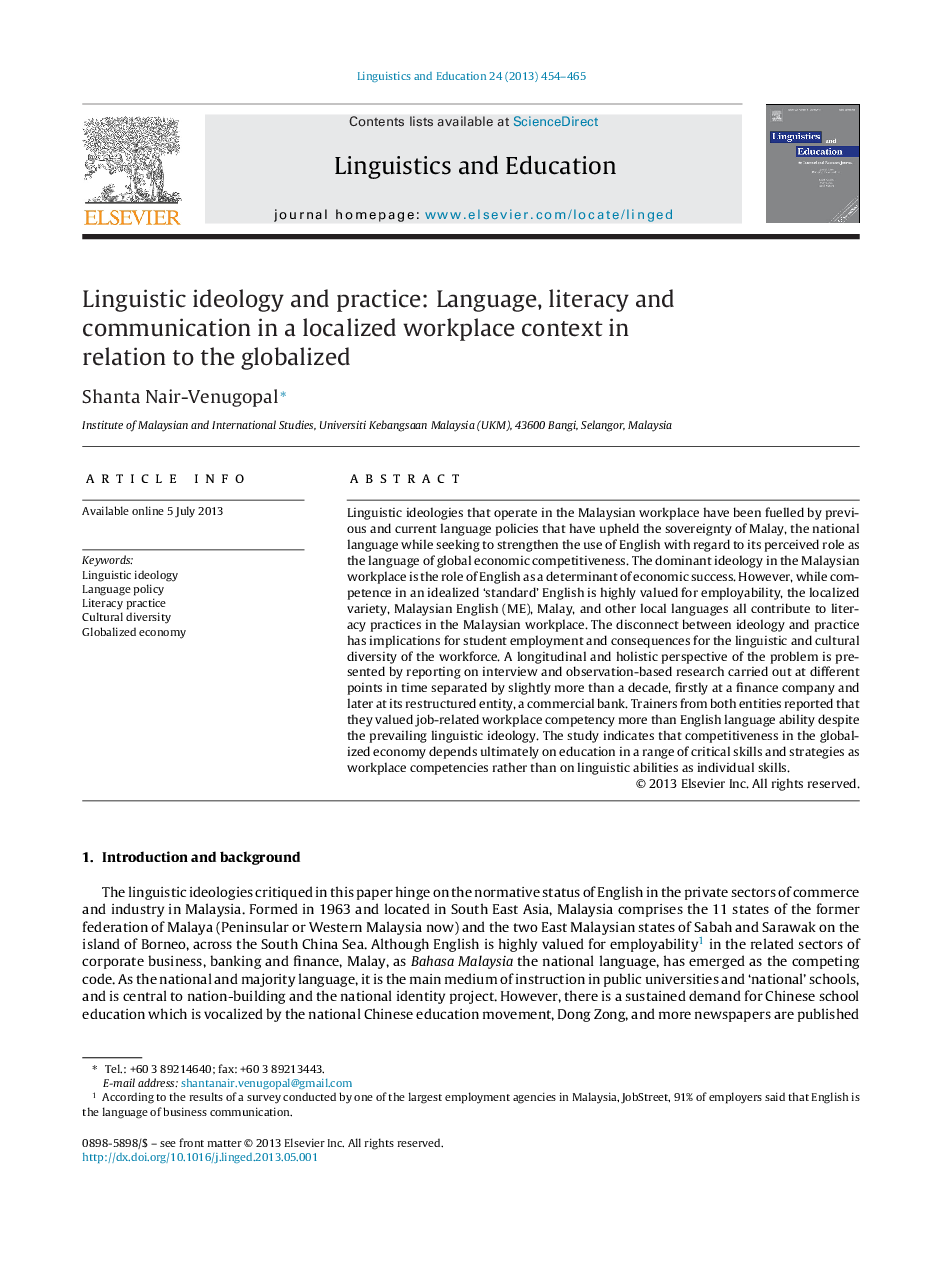| Article ID | Journal | Published Year | Pages | File Type |
|---|---|---|---|---|
| 10315874 | Linguistics and Education | 2013 | 12 Pages |
Abstract
Linguistic ideologies that operate in the Malaysian workplace have been fuelled by previous and current language policies that have upheld the sovereignty of Malay, the national language while seeking to strengthen the use of English with regard to its perceived role as the language of global economic competitiveness. The dominant ideology in the Malaysian workplace is the role of English as a determinant of economic success. However, while competence in an idealized 'standard' English is highly valued for employability, the localized variety, Malaysian English (ME), Malay, and other local languages all contribute to literacy practices in the Malaysian workplace. The disconnect between ideology and practice has implications for student employment and consequences for the linguistic and cultural diversity of the workforce. A longitudinal and holistic perspective of the problem is presented by reporting on interview and observation-based research carried out at different points in time separated by slightly more than a decade, firstly at a finance company and later at its restructured entity, a commercial bank. Trainers from both entities reported that they valued job-related workplace competency more than English language ability despite the prevailing linguistic ideology. The study indicates that competitiveness in the globalized economy depends ultimately on education in a range of critical skills and strategies as workplace competencies rather than on linguistic abilities as individual skills.
Keywords
Related Topics
Social Sciences and Humanities
Arts and Humanities
Language and Linguistics
Authors
Shanta Nair-Venugopal,
